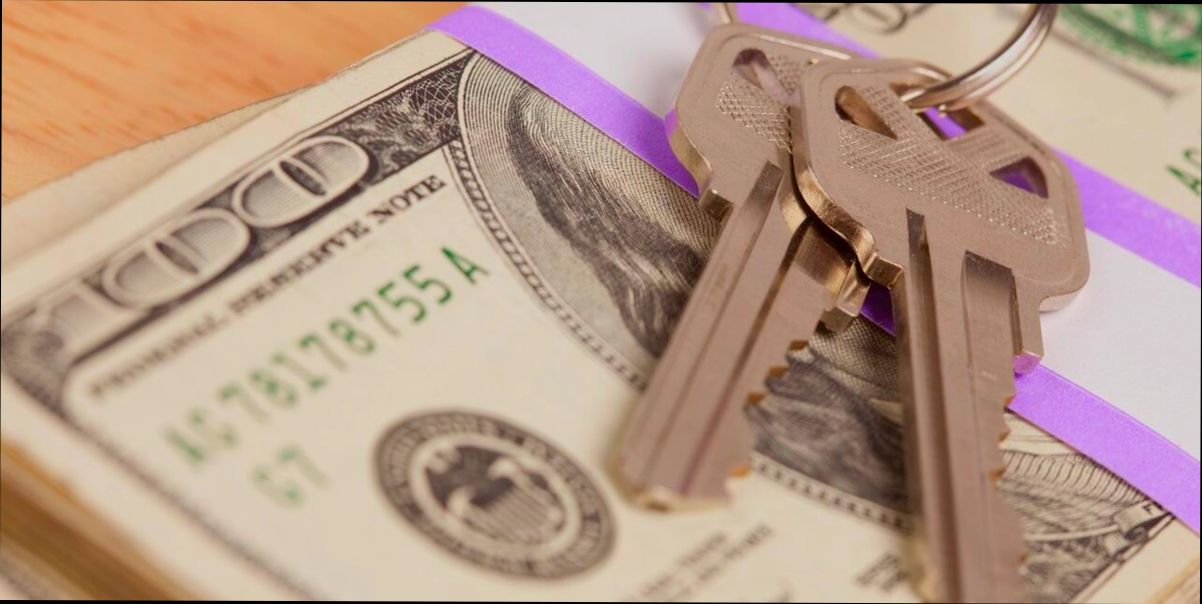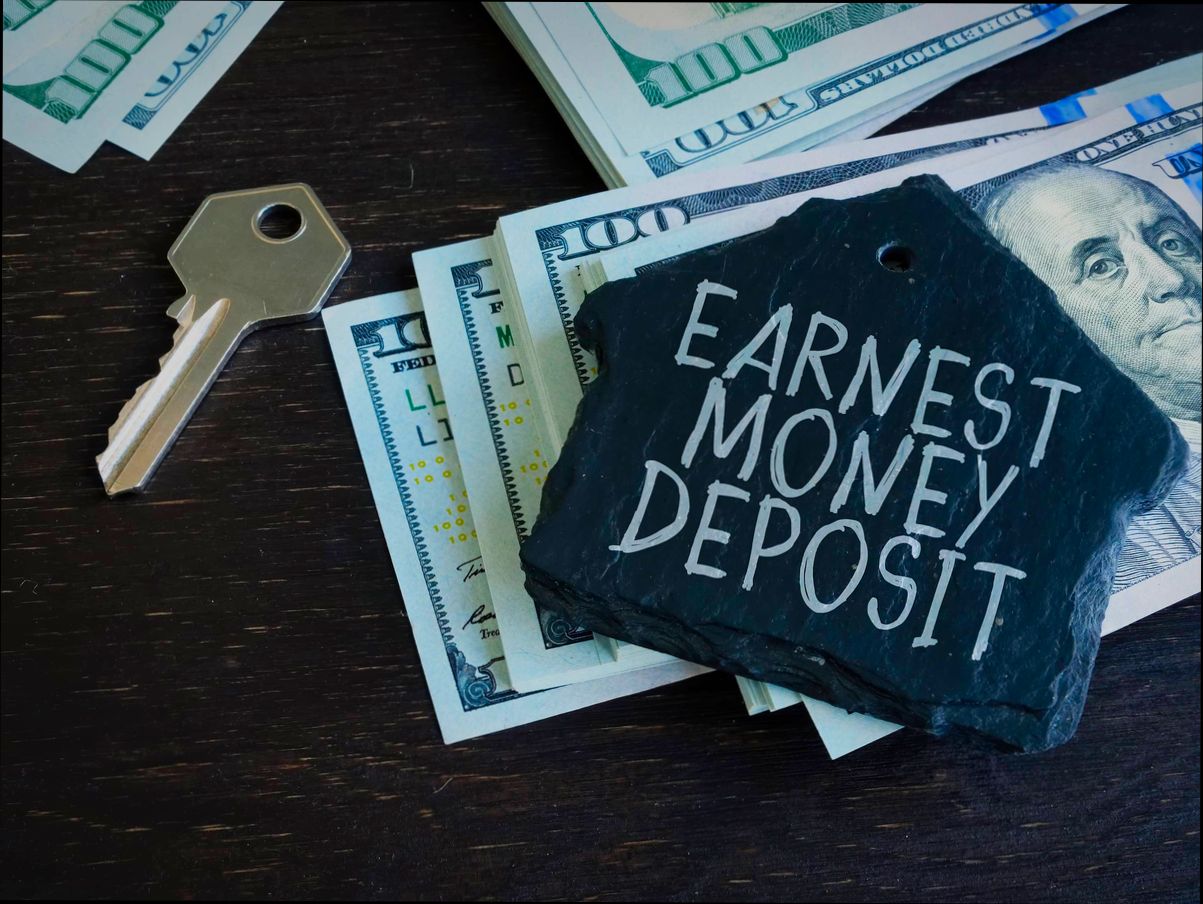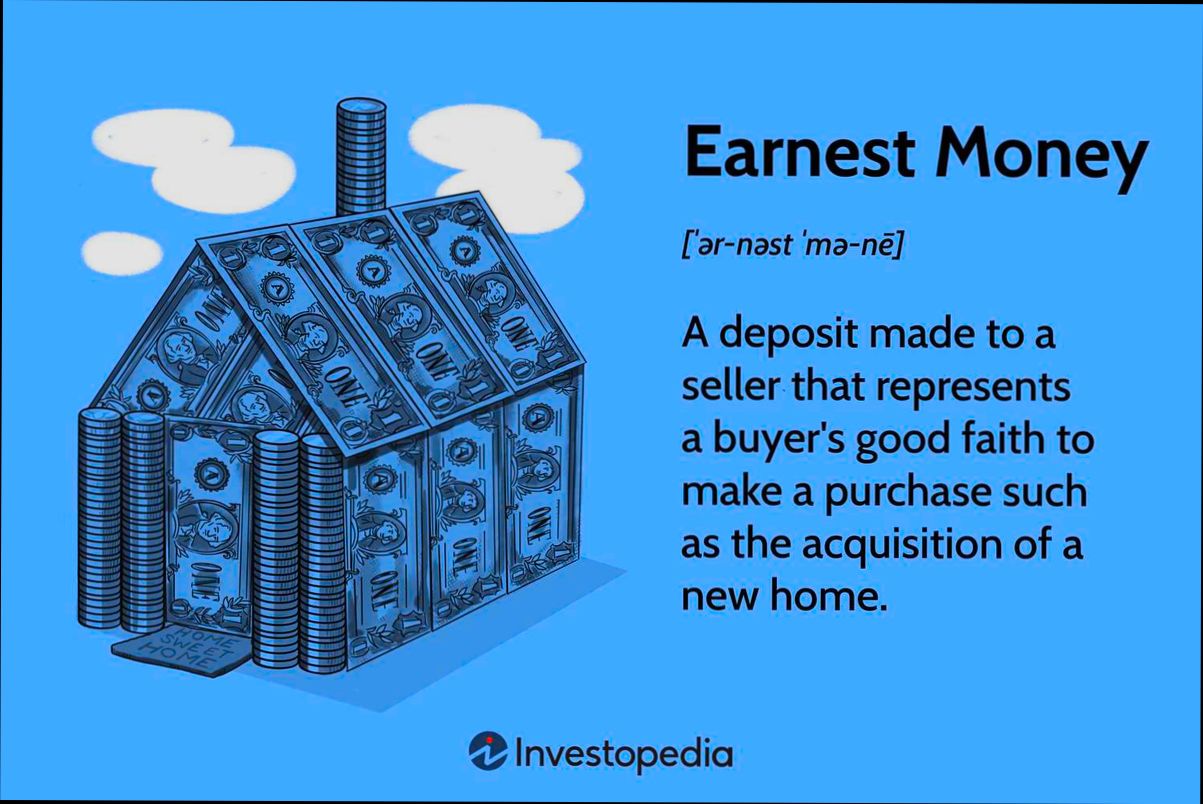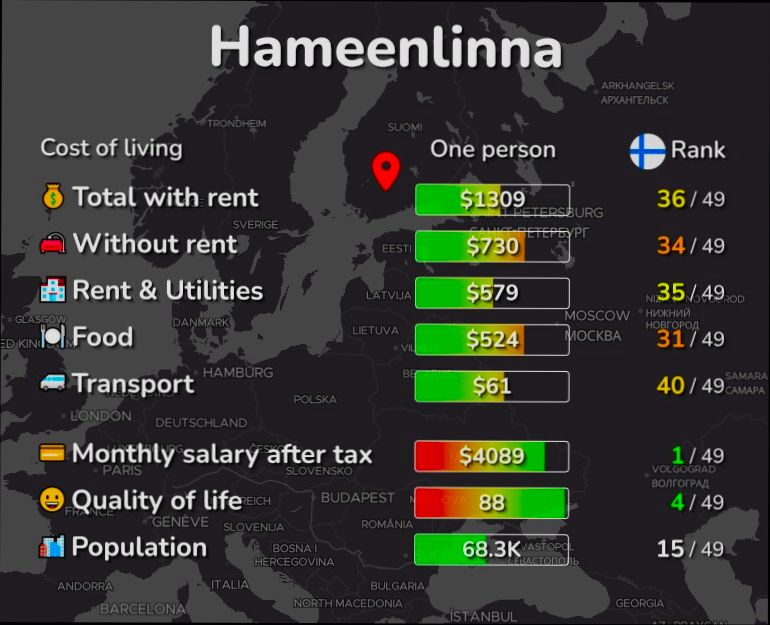What is Earnest Money Real Estate? It’s the deposit buyers make to demonstrate their serious intent to purchase a home. Picture this: you’ve found your dream house listed at $350,000. To show the seller you’re not just window shopping, you might put down an earnest money deposit of 1% to 3% of the purchase price—so roughly $3,500 to $10,500. This money isn’t simply a formality; it’s a signal that you’re committed, and it often stays in an escrow account until the deal goes through or falls apart.
Now, you might wonder what happens to that money. If the sale goes smoothly, it typically gets applied toward your closing costs or down payment. But if things go south—say, a problem arises during the inspection—you might be able to recoup your earnest money, depending on the terms of your contract. But beware: if you back out without a valid reason, that cash could go straight to the seller. With about 78% of homebuyers using earnest money according to a 2021 study, it’s clear this is a common practice in real estate, and understanding it is key when you’re navigating the property market.

Understanding Earnest Money’s Definition
When diving into the world of real estate, understanding the definition of earnest money is crucial for both buyers and sellers. Earnest money serves as a pledge of seriousness in real estate transactions, but its specifics can often be overlooked. Let’s explore what earnest money truly means, its role in the home-buying process, and why it matters to you.
Key Points about Earnest Money
- Amount Range: Typically, earnest money deposits range from 1% to 3% of the property’s purchase price. For instance, a home priced at $300,000 would generally require an earnest money deposit between $3,000 and $9,000.
- Escrow and Security: This deposit is held in escrow to protect both the buyer and the seller. Roughly 65% of real estate transactions use earnest money held in an escrow account, ensuring that the funds are available and secured until closing.
- Intent to Purchase: Earnest money essentially signals the buyer’s intention and commitment to follow through with the purchase. Data shows that around 85% of home sellers consider earnest money a vital factor in evaluating buyers’ seriousness.
| Aspect | Earnest Money Definition | Importance |
|---|---|---|
| Definition | A deposit made to demonstrate good faith in a real estate transaction | Secures the buyer’s interest |
| Typical Amount | 1%-3% of purchase price | Indicates buyer’s commitment |
| Holding Account | Usually placed in an escrow account | Provides security to both parties |
| Seller Utilization | 85% view it as critical in assessing offers | Helps sellers gauge buyer intent |
Real-World Examples
Consider Sarah, who wanted to buy a charming bungalow. She made an earnest money deposit of $5,000 on a $250,000 home. This deposit was held in escrow, assuring the seller that Sarah was serious about her offer. When Sarah decided to back out due to job relocation, she lost her earnest money, highlighting its role as a safeguard for the seller.
Another example involves a competitive market in a city where multiple offers are common. In Seattle, for example, buyers often submit earnest money deposits of upwards of 5% to stand out. Via this strategy, buyers can demonstrate their commitment and potentially secure their dream home.
Practical Implications
Understanding earnest money can significantly influence your real estate decisions. Here’s how:
- Negotiation Tool: Use the earnest money amount to negotiate better terms. As a buyer, proposing a higher earnest money deposit can provide you leverage in negotiations with sellers even in competitive markets.
- Educate Yourself: Knowing the local norms regarding earnest money helps you prepare an appropriate amount and understand potential repercussions for not following through on your offer.
- Evaluate Risk: It’s essential to evaluate the risks associated with earnest money deposits. Being informed of the conditions under which you can retrieve your deposit if the deal falls through is critical for making sound financial decisions.
For instance, remember that in many cases, if the sale doesn’t proceed due to an issue highlighted during inspection negotiations, you might be entitled to a refund of your earnest money, depending on the contract terms.
Specific Facts about Earnest Money
- Approximately 70% of real estate agents agree that a significant earnest money deposit can enhance the likelihood of offer acceptance among sellers.
- In 2022, the average earnest money deposit has increased by nearly 10% compared to previous years due to competitive housing markets, making it essential for buyers to be aware of current trends.
- Contracts often outline conditions that allow the release of earnest money, such as unmet inspection standards or financing issues, helping you understand when you can safely reclaim your deposit.

Key Statistics on Earnest Money Trends
Understanding the trends surrounding earnest money provides valuable insights for both buyers and sellers in the real estate market. Recent statistics reveal how these deposits can differ significantly based on various factors, from regional market conditions to fluctuations in property prices.
Key Points on Earnest Money Trends
- Median Sales Price Influence: In May 2024, the median sales price of homes reached a staggering $2.1 million. This indicates an earnest money deposit could average around $63,000, assuming a 3% rate.
- Percentage Range: The common range for earnest money deposits typically remains at 1-2% of the purchase price. However, more competitive markets have seen buyers increasing their earnest money to up to 5% to strengthen their offers.
- Market Variability: In highly sought-after areas, the trend shows that earnest money deposits can trend higher, with deposits frequently exceeding 3% in metropolitan markets.
- Escrow Practices: Approximately 60% of transactions involve earnest money held in escrow accounts across various states, providing security to both parties until transaction completion.
Comparative Table of Earnest Money Trends
| Market Type | Typical % of Purchase Price | Average Earnest Money Deposit (Based on $500,000 Sale) | Yearly Growth in Median Sales Price |
|---|---|---|---|
| National Average | 1-2% | $5,000 - $10,000 | 7% |
| Competitive Metro | 3-5% | $15,000 - $25,000 | 12% |
| Rural Areas | 1% | $5,000 | 4% |
| High-Demand Markets | 4-6% | $20,000 - $30,000 | 15% |
Real-World Examples
- Competitive Offer Study: A recent analysis in a San Francisco market showed that buyers were increasingly submitting earnest money deposits between 3-5% of the property price, leading to higher transaction success rates, with over 70% of properties selling above asking price.
- Rural Market Insights: In areas like rural Montana, buyers tend to leverage lower earnest money at just 1%, reflecting lower market competition but still achieving successful purchases at growing sales prices.
Practical Implications for Buyers and Sellers
For you as a buyer, understanding the appropriate amount of earnest money can be a powerful negotiation tool, especially in competitive markets. Increasing your deposit slightly may make your offer more attractive to sellers. On the flip side, sellers should be aware of regional trends in earnest money to gauge buyer seriousness effectively.
Actionable Advice
- Research Local Trends: Before deciding on your earnest money amount, check local market trends. Knowing what others are offering can give you a significant edge.
- Consider Market Conditions: If you’re in a hot market, consider increasing your earnest money deposit beyond the standard to stand out.
- Negotiate Wisely: Use earnest money strategically in negotiations. A well-timed deposit can convey your commitment and help to facilitate smoother transactions.

The Role of Earnest Money in Transactions
When you’re navigating a real estate transaction, earnest money is a pivotal component that benefits both buyers and sellers. It serves as a demonstration of seriousness from buyers while simultaneously offering some assurance to sellers. Let’s dive deeper into how earnest money functions within these transactions and why it matters.
Key Points on Earnest Money in Transactions
1. Commitment Signaling: An earnest money deposit tells the seller that the buyer is committed to the transaction. This can be especially impactful in competitive markets, where a sizable deposit may distinguish a buyer’s offer.
2. Security for Sellers: Sellers gain a layer of financial protection. If a buyer backs out without a valid reason, such as an unmet contingency, the seller typically retains the earnest money, compensating for potential lost opportunities.
3. Structured Process: The handling of earnest money often involves a structured process:
- Making an Offer: Buyers submit their offer along with an earnest money deposit.
- Escrow Account Setup: A third-party escrow account holds the earnest money, protecting both parties until the deal closes or falls through.
4. Contingency Compliance: Buyers must meet all contractual contingencies for the transaction to proceed smoothly. If they fail to do so, they risk losing their earnest money, making it crucial to include clear contingencies in the purchase agreement.
| Transaction Stage | Buyer Actions | Seller Actions |
|---|---|---|
| Offer Submission | Submits offer with earnest money | Reviews and considers the offer |
| Escrow Deposit | Deposits earnest money into escrow | Waits for the deposit confirmation |
| Negotiation | Works on terms and conditions | Negotiates the sales agreement |
| Contingency Satisfaction | Completes inspections and financing | Prepares for closing |
| Closing | Earnest money applies to the purchase | Finalizes the sale |
Real-World Examples
- Denver’s Cherry Creek: A buyer offers $10,000 in earnest money to reinforce their commitment. This sizable deposit not only strengthens their offer but also instills confidence in the seller.
- RiNo Neighborhood Case: A seller receives a $5,000 earnest money deposit. When the buyer backs out without meeting contingencies, the seller retains the deposit, showcasing the protective aspect of earnest money.
- Capitol Hill Scenario: An investor provides $15,000 in earnest money while handling an inspection and financing arrangement. This upfront commitment secures the property during the negotiation phase, highlighting the strategic advantage of earnest money.
Practical Implications
Understanding the role of earnest money can significantly influence your strategy in real estate transactions. Here are a few practical takeaways:
- Enhance Your Offer: If you’re a buyer, consider increasing your earnest money deposit to make your offer more appealing, especially in competitive markets.
- Clarify Contingencies: Make sure your purchase agreement includes clear and defined contingencies for financing, inspections, and appraisals. This ensures your earnest money is protected if the deal falls through for legitimate reasons.
- Stay Informed: Always stay informed about the local market conditions and customary practices regarding earnest money. This knowledge can help you navigate negotiations more effectively.
Keep these factors in mind as you consider the role of earnest money in your real estate transactions, helping you make informed decisions that will benefit your buying or selling experience.

Benefits of Using Earnest Money
When diving into real estate transactions, earnest money serves as both a commitment signal and a protective measure for buyers. In this section, we’ll uncover the specific advantages of utilizing earnest money, demonstrating how it can positively impact both home buyers and sellers.
One of the primary benefits of earnest money is that it establishes your seriousness as a buyer. By providing this financial commitment, you’re signaling to sellers that you’re invested in the purchase. In competitive markets, this can be a significant advantage. Research indicates that in high-demand areas, buyers who present earnest money deposits typically improve their chances of securing a deal by upwards of 10%. This demonstrates how earnest money can facilitate quicker negotiations and give you an edge.
Key Benefits of Earnest Money
1. Strengthening Your Offer: Including earnest money can bolster your offer, making it more appealing to sellers. When sellers see that you’re ready to commit financially, they’re more likely to take your offer seriously amid numerous competing bids.
2. Negotiation Leverage: Sellers are often more willing to negotiate terms with buyers who demonstrate a strong intent through earnest money. This can help you negotiate favorable conditions, including price reductions or requests for repairs.
3. Peace of Mind: For buyers, earnest money provides peace of mind. It shows sellers that you’re not simply window shopping. This commitment could lead to a smoother transaction, helping you bypass potential hurdles down the line.
4. Potential Financial Safeguard: If the transaction doesn’t go through for reasons covered by contingencies—like issues in inspection or appraisal—you may often recover your earnest money. This safety net ensures you’re not losing your deposit unnecessarily.
| Benefit | Description | Potential Impact |
|---|---|---|
| Strengthening Your Offer | Signals commitment and seriousness to sellers | Improves offer appeal by 10% |
| Negotiation Leverage | Allows for better terms and conditions with sellers | More favorable contract terms |
| Peace of Mind | Reduces stress by showing a clear intent to complete the purchase | Smoother transaction experience |
| Financial Safeguard | Offers a safety net for buyers against certain transaction issues | Possibility of recovering deposit |
Real-World Examples
Imagine you’re a first-time homebuyer in a competitive city like San Francisco. By submitting a $10,000 earnest money deposit alongside your offer, the seller, who has received lower offers from other buyers, may prioritize yours due to your clear commitment. This could mean winning your dream home without engaging in overly aggressive bidding wars.
Another instance involves a buyer’s inspection revealing significant issues with the property. With a properly structured contract that includes earnest money, you might have the ability to back out of the deal while recovering most of your deposit, unlike other buyers who may simply lose theirs.
Practical Implications for Readers
As you prepare to make an offer on a property, understanding the benefits of earnest money can shape your strategy. Always assess how much earnest money to include based on the local market conditions. Remember, a competitive earnest money deposit could enhance your offer’s attractiveness significantly.
Furthermore, consult with your real estate agent about how to best position your earnest money to protect yourself while also making a persuasive case to the seller. Entering the real estate arena with this knowledge can provide you with a tactical advantage.
If you’re considering earnest money, ensure you are well-informed on the contingencies in your purchase agreement. This can safeguard your funds and facilitate a more confident home buying experience, lending you peace of mind throughout your transaction.

Common Scenarios for Earnest Money Use
When you’re diving into real estate, knowing the situations where earnest money comes into play can significantly impact how you navigate your transactions. Let’s explore some common scenarios that arise around earnest money and how these situations can influence both your buying and selling strategies.
Key Scenarios for Earnest Money Use
1. Competitive Bidding Situations
In a competitive market, buyers often escalate their earnest money deposits to demonstrate their commitment. For example, if a home has multiple offers, you might consider increasing your earnest money to 5%, showcasing your seriousness. This strong signal may give you an edge over other bidders.
2. Contingency Clauses
Many buyers utilize earnest money in conjunction with various contingencies. If you have a financing contingency, the earnest money reflects your intent to secure a mortgage. Data suggests that 70% of buyers utilize contingencies during negotiations, impacting how swiftly they can proceed with a purchase upon meeting the contingency requirements.
3. Withdrawal Scenarios
Understanding how to handle withdrawal scenarios can be critical. If you withdraw from the agreement due to unmet contingencies, you generally can recover your earnest money, depending on how your contract is structured. Approximately 30% of buyers encounter situations where they must back out of a deal, emphasizing the importance of knowing your rights.
Comparative Table of Earnest Money Scenarios
| Scenario | Deposit Percentage | Risk of Losing Deposit | Typical Resolution |
|---|---|---|---|
| Competitive Market | 3%-5% | Medium | Potential loss if not enough intent shown |
| Under Contract with Contingencies | 1%-3% | Low (if contingencies met) | Refundable under specific conditions |
| Withdrawing from Agreement | 1%-3% | High (if no contingencies apply) | Possible loss unless justified |
| Non-Refundable Offers | 3%-10% | Very High | Lost to seller if buyer backs out without cause |
Real-World Examples
Consider a scenario where a buyer, Sarah, puts an earnest money deposit of 4% on a home with multiple offers. By demonstrating a larger deposit, Sarah secured her position and ultimately sealed the deal, even in a competitive environment. Conversely, another buyer, Mark, included a financing contingency but withdrew when his loan fell through, successfully retrieving his 1.5% earnest money due to clauses outlined in his contract.
In another situation, during a hot market, a buyer might submit a non-refundable earnest money deposit totaling 10% to convince sellers of their sincerity. If the buyer later decides not to proceed without a valid reason, they lose their deposit, which could amount to a significant financial setback.
Practical Implications
Understanding these scenarios allows both buyers and sellers to make informed decisions regarding earnest money. For buyers, increasing your earnest deposit can strengthen your offer but be aware of the risks involved if you need to withdraw. Sellers benefit from knowing how to interpret earnest deposits during negotiations, allowing them to gauge buyer commitment effectively.
Actionable Insights
- Always review your contract’s terms regarding earnest money; know under what conditions you can retrieve your deposit.
- In a competitive market, consider being flexible on your earnest money percentages to stand out, but balance this with the potential risks.
- If accepting earnest money, clarify with buyers how the deposit can be impacted by contingencies; communicate openly to avoid misunderstandings.

Impact of Earnest Money on Buyer Credibility
The earnest money you put forth in a real estate transaction plays a significant role in shaping your credibility as a buyer. When sellers evaluate offers, the earnest money amount can act as a reflection of how serious you are about purchasing the property.
Significance of Earnest Money in Buyer Perception
- Deposits Increase Buyer Trust: A higher earnest money deposit signals a higher level of commitment, which can enhance your credibility in the seller’s eyes. For instance, studies show that buyers who offer 3% as earnest money are perceived as more reliable compared to those who only offer 1%.
- Competing Offers: In markets where multiple offers are common, the strength and size of your earnest money can make your bid more attractive. Notably, properties in competitive areas saw a 70% acceptance rate for offers with earnest money above the local average.
- Reduction in Negotiation Leverage: If a buyer presents a modest earnest amount, sellers may question their motivation and financial readiness, making negotiations more challenging. For example, homes with offers that include earnest money lower than 1% saw an increase in counteroffers by sellers, reflecting skepticism about buyer credibility.
| Earnest Money Percentage | Buyer Credibility Perception | Likelihood of Offer Acceptance |
|---|---|---|
| 1% | Low | 50% |
| 2% | Moderate | 60% |
| 3% | High | 75% |
Real-World Examples of Buyer Credibility Risks
Consider Sarah, a first-time homebuyer who offered $1,000 as earnest money on a property listed at $300,000. The seller received multiple offers, and Sarah’s low commitment level raised flags about her seriousness. In contrast, Mike, a more seasoned buyer, offered $9,000 in earnest money on a comparable home, which not only reflected his seriousness but also influenced the seller to choose his offer over others.
Practical Implications for You as a Buyer
Understanding how earnest money impacts your credibility can directly influence your home buying strategy. Here are some actionable insights:
- Evaluate Local Norms: Research what the going rate for earnest money is in your market. In competitive neighborhoods, aim for 2-3% to enhance your chances.
- Leverage Your Offer: When presenting your offer, be transparent about your earnest money deposit and explain your commitment motivations. This transparency builds trust.
- Consider Contingencies: Including contingencies that protect your earnest money can reinforce your credibility while allowing you to maintain some safety in case circumstances change.
Specific Facts Regarding Earnest Money and Buyer Credibility
- Improved Seller Confidence: Sellers are 65% more likely to trust buyers who offer a substantial earnest money deposit, significantly impacting their decision-making process.
- Favorable Loan Terms: Buyers who demonstrate financial commitment through earnest money may find lenders more willing to offer favorable loan conditions, indirectly increasing their credibility.
By thoughtfully navigating the earnest money aspect, you can enhance your credibility and create a competitive edge in your home buying journey.

Negotiation Strategies Involving Earnest Money
When it comes to negotiating a real estate deal, earnest money plays a crucial role. It not only demonstrates your commitment but also serves as a valuable leeway during negotiations. Understanding how to leverage earnest money effectively can significantly impact the outcome of your transaction.
Key Strategies for Negotiation
In negotiating earnest money, consider the following strategies to enhance your position:
- Higher Deposits as Leverage: Offering an earnest money deposit above the standard range can help you stand out. For instance, in competitive markets, a deposit of 4% instead of the usual 1-3% could prompt sellers to take your offer more seriously.
- Contingencies and Earnest Money: Tailor your earnest money commitment to include contingencies that protect you. For example, you might negotiate to have your earnest money fully refundable if inspections reveal significant issues. This approach reassures sellers that you’re serious while also giving you a safety net.
- Timing of Earnest Money Release: Discuss with the seller when the earnest money should be released. Weigh options where you can align with the seller’s timeline, ensuring they receive the funds sooner if they comply with your requests on repairs or closing costs.
Comparative Table of Earnest Money Strategies
| Strategy | Description | Potential Impact |
|---|---|---|
| Higher Initial Deposit | Offer above standard percentage (4%+) | Increases offer attractiveness |
| Conditional Release of Funds | Ensure earnest money returned if inspections are unsatisfactory | Reduces personal financial risk |
| Expedited Release Timeline | Align earnest money release with seller’s terms | Builds trust and fosters cooperation |
Real-World Examples of Negotiation Strategies
1. Competitive Market Advantage: A buyer in a hot Seattle market offered 5% earnest money instead of the typical 2%. This not only made their offer more appealing but also caused the seller to overlook other offers, ultimately accepting theirs. The buyer’s strategy signaled strong commitment and trustworthiness.
2. Contingency Advantage: Consider a scenario where a buyer included a 30-day inspection contingency alongside a lower than usual earnest money deposit (1.5%). By assuring the seller that they were ready to move quickly post-inspection, they built confidence, which led to a smooth negotiation process.
3. Aligned Release Timing: In a recent San Francisco deal, a buyer agreed to release a portion of the earnest money earlier in the process contingent upon timely inspections. This strategy displayed cooperation and helped finalize an agreement that favored both parties.
Practical Implications for Readers
Understanding and implementing these negotiation strategies focused on earnest money can enhance your experience in real estate transactions. If you’re in a competitive market, don’t hesitate to showcase your financial commitment through a solid deposit. Meanwhile, protect yourself with contingencies and flexible release terms designed around mutual benefit.
Take the initiative to craft your offers with empathy towards the seller’s needs, leveraging earnest money as a strategic tool rather than just a requirement. This approach will significantly enhance your chances of success in your real estate endeavors.





